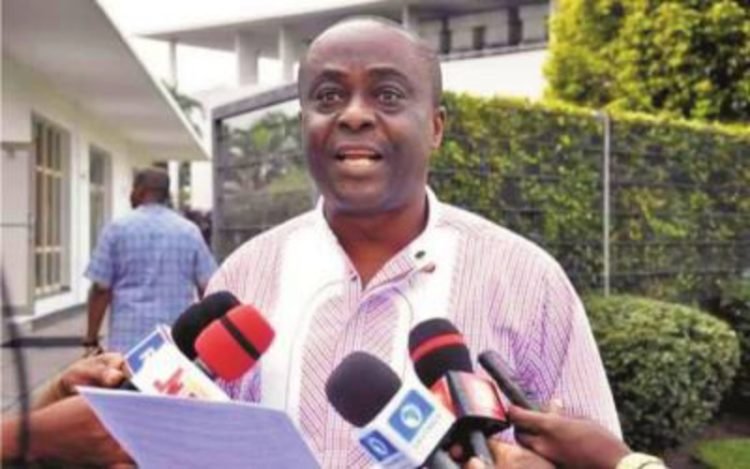Enter COVID-19!
The first reports about an unknown virus reached the World Health Organisation (WHO) on the last day of 2019. The virus was responsible for some lung inflammatory illnesses in Wuhan, China, a town of over 11 million people. On February 11, 2020, WHO designated the virus, COVID-19 – an amalgam of its status as a novel strain of the Coronavirus family. The label also incorporates the year of origin of the virus. From an epidemic limited to parts of China, COVID-19 has now metastasized into a pandemic.
Data from John Hopkins University indicates that there are approximately 1.8 million cases of COVID-19 in about 185 countries. Close to 110,000 persons have died as a result the Coronavirus. The widest outbreaks of the virus have so far occurred in China, Italy, Spain and the United States of America. Coronavirus patients have also been identified in many countries in Africa, including Nigeria.
COVID-19 in Nigeria
According to Nigeria’s National Centre for Disease Control (NCDC), there are less than 500 cases of Coronavirus in the country. Ten of these patients have died while 70 others have recovered from the ailment. Although there is no known cure for COVID-19, like most parts of the world, the Nigerian government has adopted Social Distancing, as its primary strategy for inhibiting the spread of the virus.
In addition, most states in Nigeria have issued executive orders shutting down land, air and sea entry points. They have also closed markets and offices, placed restrictions on internal movement and in some instances, instituted strict lockdowns. The question, however, is how practical are these measures in the Nigerian environment?
Social Distancing in Nigeria – a “failed project”
Nigeria’s challenges are multiple. For instance, the country has been at war with Boko Haram, a transnational terrorist organisation for more than a decade. The country’s conflict with the insurgents have led to the death of over 20,000 persons and the displacement of over two million people. Despite the federal government’s claim that Boko Haram has been “technically defeated”, in many parts of Nigeria’s north, Boko Haram is still a potent threat.
Added to a huge insecurity problem are other well-established issues. These include institutionalised and pervasive corruption, ineffective leadership, high poverty index, illiteracy, women disempowerment and high mortality rate. These concerns make the case for social isolation really difficult in the Nigerian context. For instance, how can you ask a trader who relies on daily sales to feed, to remain indoors for weeks without providing reliable alternatives for survival?
Whereas social distancing may prove effective for the West, in Nigeria it is a “failed project”. For example, ask the people in Port Harcourt and Lagos if they are really practicing social distancing. There is, therefore, a need for more sustainable solutions to the Coronavirus menace in Nigeria.
For now, we have been told identified cases in the country are low. But, this may be because there are insufficient testing kits. Nigeria must, therefore, brace herself for a possible avalanche of Coronavirus cases.
President Buhari and all state governors need to set in motion plans for testing, tracing, isolating, triaging Coronavirus patients and finally burying those who die from the illness. This is critical to avoiding the type of events currently taking place in Ecuador. Whereas Lagos State is demonstrating exemplary leadership in many respects, other states may face challenges in managing a public health crisis of this magnitude.
Nigeria’s Low Implementation Index
But, we are troubled by the understanding that Nigeria has very low solution implementation index. For instance, Nigeria’s COVID-19 index case occurred on February 27, 2020. However, despite warning calls, the federal government refused to take appropriate actions until March 23. Admittedly, some of Nigeria’s problems are difficult to resolve owing to its polarised nature – a product of the influence of two key identity markers – ethnicity and religion. However, even when achievable solutions are proffered, there usually is a lack of willingness to execute them owing to the “politicisation of all things”.
A classic case is the pollution problem plaguing the Niger Delta, which has been shown to adversely affect human health. Whereas the measures set in place for COVID-19 are mainly designed to reduce transmission rates, there are lasting solutions to pollution in the Niger Delta. While the breakout of Coronavirus in the country has inspired Nigeria’s elite class to donate funds in support of state measures to curb the spread of the virus, conversations about the Niger Delta have been almost forgotten. Like COVID-19, which has been known to attack the respiratory system, inhaling polluted air particles have been shown to negatively impact vital body organs including the heart and lungs.
Looking “in-side the box”
In the past, the elitist class in Nigeria could afford to escape the country in the event of serious issues. Today, owing to the realities of COVID-19, most borders are shut and there is nowhere to escape to! We are all literally in a box. So, how about thinking not outside the box but “in-side the box” by searching for not just homegrown but feasible solutions? How about handing out government-paid-for masks, hand gloves and sanitizers to all Nigerian citizens? In fact, for those in the south-south, especially Rivers State, masks and hand gloves ought to be a standard dress code. This measure will accomplish two objectives. First, curb the spread of COVID-19. Second, prevent the continuous intake of polluted air/soot.
While the handing-out of palliatives by the state government and other well-meaning individuals seems like the right thing to do given the status quo, Nigeria’s lack of data culture places a huge limitation on the effective implementation. For example, Governor Nyesom Wike of Rivers State has decided to give out palliatives to the less privileged in the state. He has also dedicated N2billion to empower farmers and fishermen in Rivers State. While these seem like laudable projects, the question is: Who are the less privileged in Rivers State? Who are the farmers and fishermen in the state? If they do exist, where is the data to support the claim as this is key to effective and transparent distribution of the stimulus packages.
Yet, we must commend Wike for taking some swift proactive measures to limit the spread of COVID-19 in Rivers State. This is especially when compared to the mixed and very confusing signals coming from the federal level.
The Elan Way
At the Elanhub, our goal is to evaluate issues critically but also take a firm stand. With respect to COVID-19 the government has done fairly well. However, there is a lot more to be done.
We also encourage alternative viewpoints at the Elanhub. Having read our piece, leave a comment below on your position on the subject. Better still, why not engage us directly by sending in your thoughts in response to ours at elanhubx@gmail.com. Do stay Safe!
















This is quite a fantastic masterpiece. Nicely written. Thanks ElanHub for sharing.
However, the fact that Nigeria’s Social Distancing (lock down) Project is a failed project cannot be overemphasized. In the western world, people are on lock down with a proper strategy for feeding, electricity and of course, good water supply. But here in Nigeria, the government is declaring a lock down with no reasonable strategy to help the people stay at home as expected.
How do you expect a bus driver or conductor who feeds himself and his family on a daily basis to stay indoors for weeks without any source of income or any provision of food for himself and family? How possible is that? The same is applicable to the market men and women. Now, crime rate will be on the increase because people want a means of survival.
In as much as I acknowledge the necessity of the lock down to prevent the spread of Covid 19, I believe the government can and must do better and ensure that the masses have constant electricity, and the needed financial support, as well as provision of essential food items (in a reasonable quantity) to help people go through the lock down period in peace.
I will like to also mention that, anyone well meaning Nigerian who desires to give money to help fight Covid 19, should henceforth stop giving money to the federal government. Instead, that’s individuals should use the money and purchase the needed hospital materials or equipment and send them straight to the hospital later or clinics. Giving or donating money to the federal government is as good as the failed project of the Social Distancing. Therefore, I strongly recommend that they should have a second thought on this.
Above all, we hope that a vaccine for Covid 19 comes out as soon as possible, so we can all go back to our normal ways of living. This too, shall pass. For me, I chose to be Elan, and I choose to be all that I can ever be regardless of whatever we’re all passing through.
Be Elan, be all that you can ever be. Smiles…
Regards,
Kingsley.
Thanks Kingsley. We’ve enjoyed reading your comment.